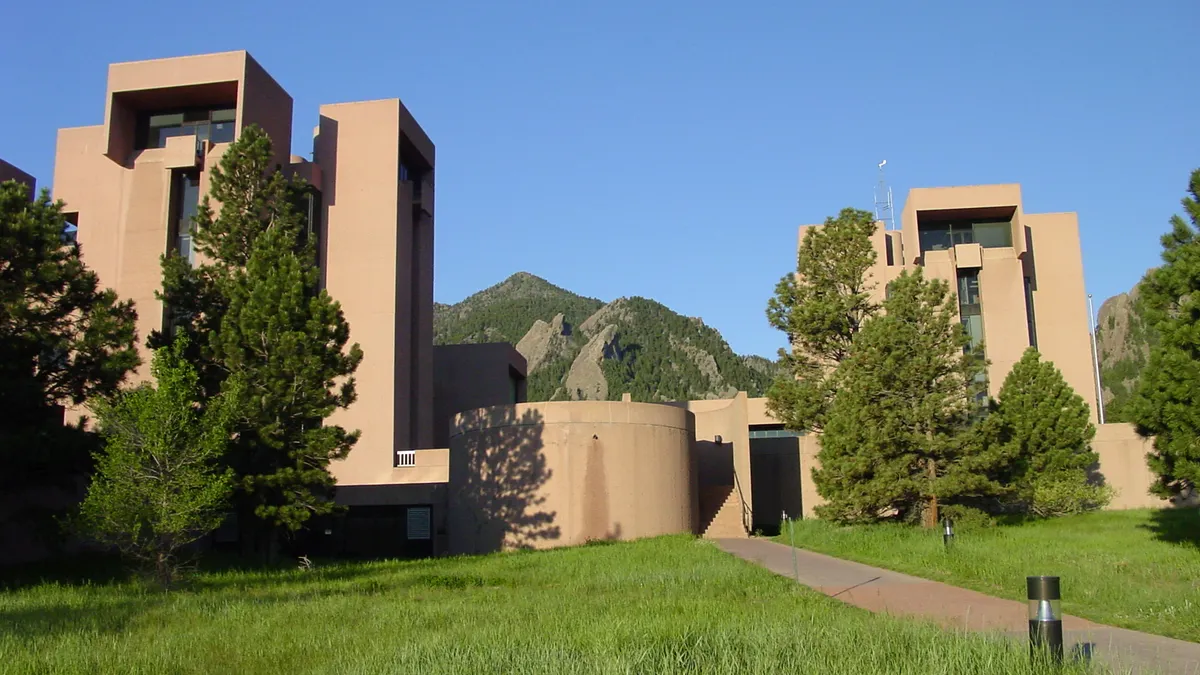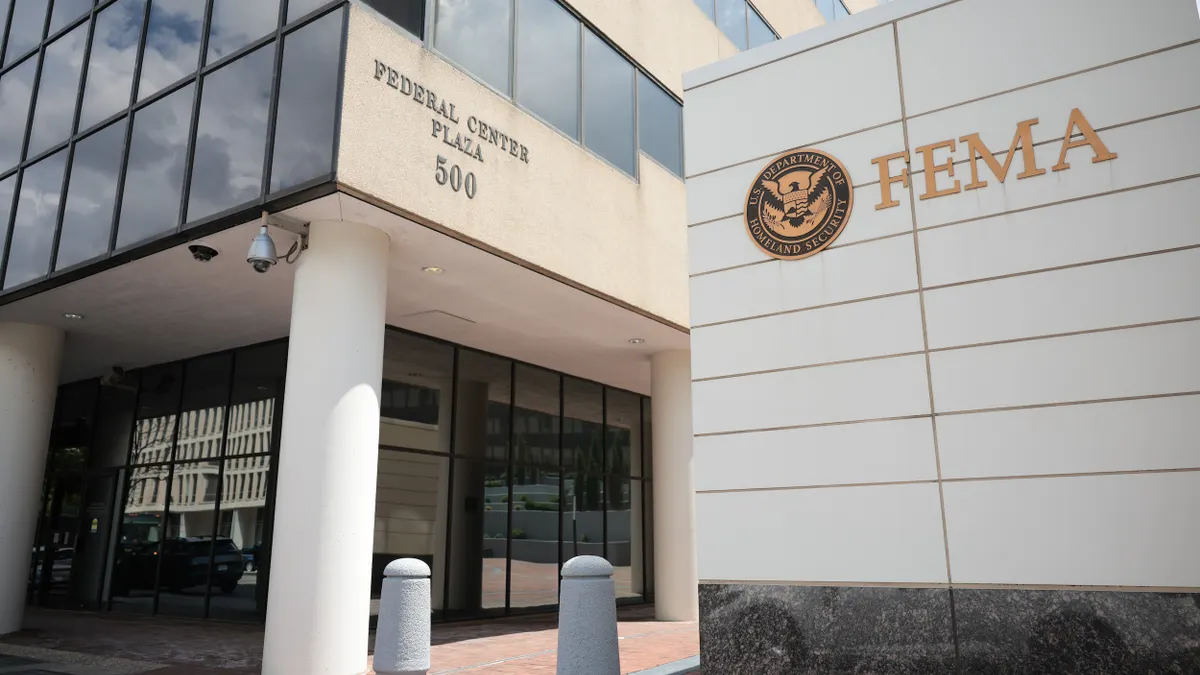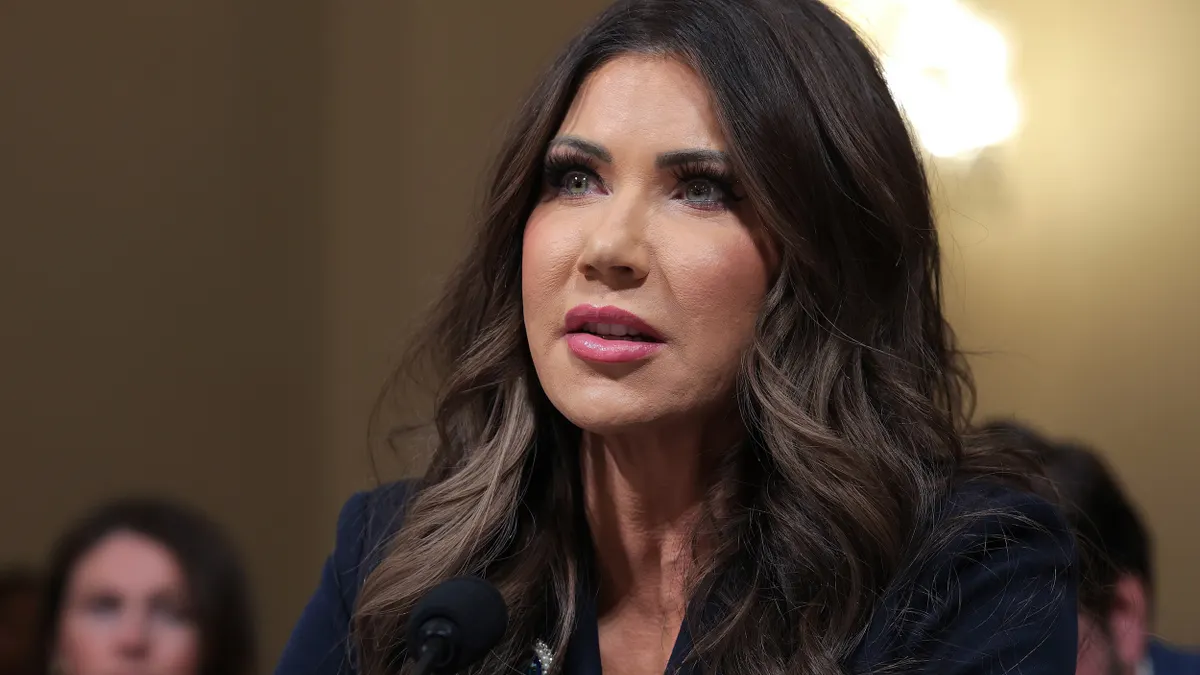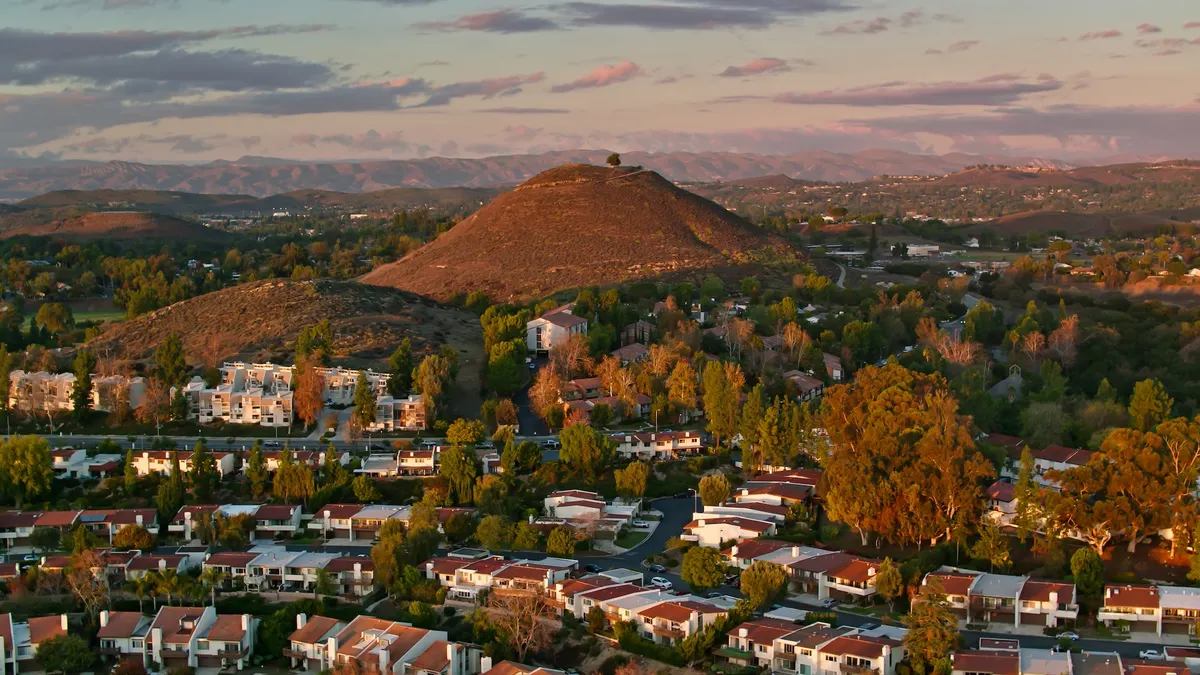As cities get closer to ambitious sustainability deadlines and look for new ways to weather changing recycling markets, some are finding themselves pushed to embrace a more entrepreneurial spirit.
Phoenix's own circular economy efforts were recently on display at a major waste industry trade show, WASTECON — both as a model of what other cities can do and the limitations they may have without forging outside partnerships. For Phoenix, that partner has been Arizona State University (ASU). The school's Resource Innovation and Solutions Network (RISN) incubator, launched in 2017, is described as the first-of-its-kind in the United States.
"For us, on our journey, it really was about looking deep into our community," said Alicia Marseille, director of community entrepreneurship at ASU, during a conference panel. "We’re not just looking to fix our own problem, we’re looking to provide solutions that are regional in nature."
RISN has incubated 16 companies so far, with $3.86 million in capital raised and 74 jobs created. The incubator seeks ideas for small-scale, modular concepts that can make the city more resilient and adaptive to changes in the waste stream. In addition to initial financial support from both the city and ASU, the initiative was also founded with one critical element – access to Phoenix's waste itself.
For Renewlogy, a Utah-based chemical recycler recently awarded a contract in the city, this combination of business savvy from RISN and guaranteed material from the Phoenix Public Works Department was a unique fit.
“It’s really important to figure out how to mitigate the risks and figure out who brings what value to the table," said CEO Priyanka Bakaya. “Often the technology providers don't need money. What we’re looking for is some guaranteed feedstock, which you might have access to, and perhaps some land.”
Phoenix is willing to offer both, with abundant space available at a new Resource Innovation Campus (RIC) next to a closed landfill. In return, the city will have a home for mixed plastics currently being landfilled (with the exception of #5) due to market conditions. Renewlogy's plan — once negotiations, permitting, financing and construction are complete — is to process up to 10 tons per day and potentially expand in the future. Phoenix itself only has around three tons of mixed plastics per day, so there will be a lot of room for regional participation.
While this first major example of a RISN project winning a contract in Phoenix may seem very well-timed, it is actually an example of how long the process can take.
Renewlogy was among the incubator's first participants, with conversations beginning even before the full extent of China's scrap import policies were felt. Given how many projects the department is approached with, and the longevity of municipal procurement, this is a fact of life for Public Works. RISN's ability to vet companies and walk them through financial questions that municipal officials may not be allowed to address can actually help expedite the process.
“We’ve really been proactively engaging with the marketplace," said Public Works Deputy Director Brandie Barrett of the mixed plastics example. “Just think if we hadn’t started thinking proactively back then where we’d be now."
Reimagine Phoenix
Phoenix's status as a circular economy pioneer may seem unlikely at first glance. The city's landfill is barely a decade old, with estimated capacity remaining for hundreds of years, and tip fees are among the lowest in the country.
Yet, as the story goes, then-Mayor Greg Stanton took issue with the city's image as the "least sustainable" in the United States and decided to change that. The fact that Phoenix is one of the fastest-growing cities in the country also makes waste management a priority. In 2013, the Reimagine Phoenix initiative laid out a goal of 40% diversion by 2020 and "zero waste" by 2040. For the generators within its purview (single-family residences and schools) Public Works has sought to more than double its starting diversion rate to 36% as of the last fiscal year.
While it may not have any policy oversight when it comes to commercial waste, Phoenix is in the relatively unique position of controlling all of its own infrastructure. In addition to the active landfill, the city owns a collection fleet, transfer station, two MRFs and a new composting facility.
The composting facility, under contract by WeCare Denali, is already operating at its 55,000 ton-per-year capacity since opening in 2017. Phoenix estimates about 30% of its waste stream is green waste, making the investment a key step toward its "zero waste" goals. Material comes from a variety of sources, including an opt-in curbside pilot program for residents. The facility also handles small amounts of food waste – mainly from the city's convention center, airport and a few private haulers – but is more focused on optimizing its green waste operations.
Public Works is continuously looking for ways to encourage partnerships with other city agencies to use the finished compost, in addition to WeCare's own commercial sales, but Barrett also noted that "Arizona’s compost market needs a little bit of development."
Adjacent to the compost operation — part of Phoenix's RIC — the city has also been working with a company to turn palm silage into livestock feed. While palm fronds are a common sight throughout the area, the project has actually received less tonnage than anticipated. Now, the city is working to wind down operations with the current contractor and rethink its approach.
"Without an adequate amount of volume the whole economic development component didn't play out in the way it was structured and designed," Assistant Public Works Director Joe Giudice told Waste Dive. "You have to be open to the fact that you're going to learn some things along the way so you can do it better next time."
Meanwhile, in a sign of the need to pursue opportunities across multiple categories of the waste stream, Phoenix has found early success with an appointment-based textile collection pilot run by Goodwill Arizona. The city sees an estimated 18,000 tons of textiles tossed each year, some of which end up in MRFs as contamination, so this no-cost partnership has been a natural fit.
Expanding the model
ASU is now looking for ways to help others replicate the RISN model and it has caught on quickly. The RISN team is part of an informal network with a dozen or so government entities all pursuing their own circular economy aspirations throughout the United States. With more attention turning toward domestic infrastructure and public sector autonomy in recent years, the interest is evolving at a fast pace.
During another WASTECON session, speakers laid out a few basic starting points for other public sector operators looking to follow suit. Some argued that it may be as simple as finding ways to change the narrative with local officials.
“Waste is not really waste, it’s a resource," said moderator Corinne Rico, a project manager at Gershman, Brickner & Bratton (GBB). “Any community can really begin to take this shift as long as we understand what the building blocks are in order to create that move."
As evidenced in Phoenix, political will and adaptability is a big part of the equation. The willingness of city officials to offer up underutilized land for the RIC, and establish the Reimagine Phoenix targets, set the city on its current path.
Similarly, GBB President Steve Simmons outlined how plans for a new "sustainable business park" in Kent County, MI came together after an incoming public works director decided he wanted to use new property purchased to build another landfill for something else. Gena McKinley, strategic initiatives division manager for Austin Resource Recovery (ARR) in Texas, described moving from disappointment that the state legislature had preempted a bag ban to optimism that it had passed a market development bill.
Equally important, according to panelists, is finding ways to partner with city economic development agencies or other business organizations. This means not just collaborating with data, but also working closely to ensure waste and recycling priorities are being recognized as an economic opportunity.
In Austin, according to McKinley, "zero waste, reuse and recycling" have been specifically written into new economic development plans. ARR even pays a staffer who splits time with the city's Economic Development Department as part of a broader memorandum of understanding.
“It’s a very mutual relationship in terms of challenges, or problems, or projects that we’re trying to solve for, or push for, or push forward," she said.
Even if a municipality or county doesn't have that type of entity, Simmons recommended looking more broadly to find other partners. Kent County has teamed up with a regional economic development organization that has been helpful in coordinating communication with state legislators, pursuing tax exempt bonds and helping sell a project's story to the local business community.
“They can’t take a bad project and make it work," he said, "but they can take a medium project and make it great."





















